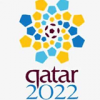As if the Qatar 2022 World Cup had not generated enough controversy already, another dispute came to stir things up. FIFA, the International Federation of Football Associations (acronym in French), announced on 25 February through its Secretary-General, Jérôme Valcke, that it will not compensate UEFA, the Union of European Football Associations, for losses that its members may incur due to a possible change of dates of the 2022 World Cup.
In brief, the dispute has as follows: A FIFA task force that met in Doha on 24 February recommended that the World Cup take place from 26 November to 23 December 2022, instead of the traditional summer period. The reasons are understandable and should of course have been considered from the outset, when the candidates for hosting the World Cup were being evaluated. Perhaps promises of massive air-conditioning capacity made by Qatar at the time were persuasive enough, technical feasibility and carbon footprint left aside. The truth is, though, that the Qatari summer heat would be too dangerous for players ands spectators alike.
November – December, though, is peak time for the European football leagues, which will have to rearrange their matches and introduce a break during that period. The FIFA Secretary-General explained the refusal to consider compensations on the basis of the seven years that remain till 2022. According to him and UEFA this time should be enough for the European football clubs to make the necessary adjustments at minimal cost.
This is not the only controversy surrounding the Qatar World Cup. The long-documented slavery-like conditions of numerous foreign workers in the country is aggravated by the requirements of World Cup facility construction, reportedly leading to frequent accidents and deaths. Improvements in legislation and other mitigating measures promised by Qatar months ago do not seem to be materializing, with FIFA’s apparent acquiescence.
The seven years remaining till the 2022 World Cup, including the three to the Russian World Cup of 2018, may well be mired in controversy, even if the FIFA ethics committee concluded in 2014 that there was not sufficient evidence of rule breaking to challenge the award to the two countries. A penalty of sorts for Qatar may be the decision by FIFA not to award to it the 2021 Confederations Cup, which usually goes to the winner of the World Cup; another Asian country is now sought to host this. In any case, in the shiny world of resource-rich autocracies and professional sports money seems to trump all other considerations.



